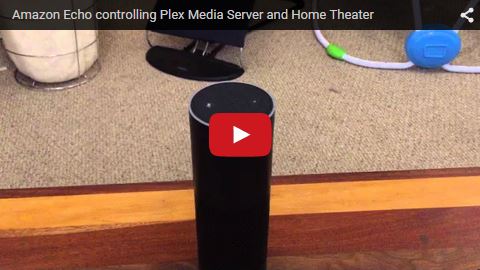Great news for Plex and Amazon Echo fans alike!! I am going to be working directly with Plex to make an official Alexa Plex skill, which will be totally streets ahead.
Stay tuned to Plex's official channels for more!
The final state of this public project will remain here for people to learn from, but no further development should be expected.
(original readme follows)
Alexa (Amazon Echo) app for interacting with a Plex Server and controlling client playback
This page is for developers that want to help develop the app. If you want to USE the app, check out this page: https://overloadut.github.io/alexa-plex/
Development is being tracked on Waffle.io: https://waffle.io/OverloadUT/alexa-plex
Here's an early proof-of-concept video
npm installto install all dependenciesnpm testto verify that all tests are passing. If they are, you're ready to rock!
The app is meant to be deployed as an AWS Lambda function. Setting that up is beyond the scope of this readme though. There's a deploy.bat file in this project that will deploy to AWS Lambda if you're on Windows, but you will need to have the AWS toolkit installed and configured, and have an "alexa-plex" function set up.
This app requires DynamoDB. You'll need to get that set up and create a table named AlexaPlexUsers with a primary string key of userid
You need to define a few environment variables to tell this app how to talk to your Plex server. The project is set up to use dotenv so you can simply create a .env file in the project root to define all of the needed variables. Here's a template:
APP_PRODUCT=Alexa Plex
APP_VERSION=2.0
APP_DEVICE=Amazon Echo
APP_DEVICE_NAME=Alexa
APP_IDENTIFIER=(generate a UUID for your app)
ALEXA_APP_ID=(create an alexa app and put the app ID here)
AWS_ACCESS_KEY_ID=(you need AWS credentials here that has read and write access to a DynamoDB table)
AWS_SECRET_ACCESS_KEY=(you need AWS credentials here that has read and write access to a DynamoDB table)
